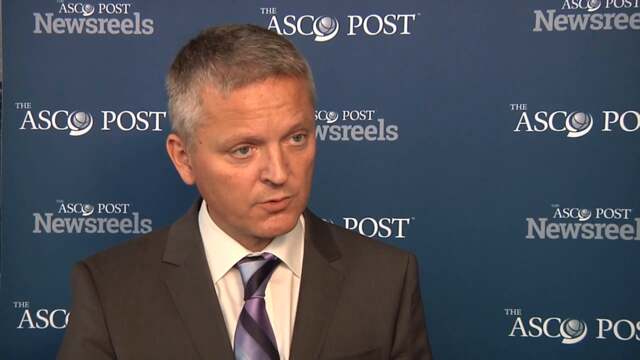Andrew Zelenetz, MD, PhD's Expert Analysis of Two Key Lymphoma Trials: FLASH and GADOLIN
2015 ASCO Annual Meeting
Andrew Zelenetz, MD, PhD, of Memorial Sloan Kettering Cancer Center, discusses two important lymphoma trials presented at ASCO and his views on whether their results are indeed practice-changing (Abstract 8504 and LBA8502).
Carolyn Jean Presley, MD, and James L. Mulshine, MD
James L. Mulshine, MD, of Rush University Medical Center, and Carolyn Jean Presley, MD, of Yale Cancer Center/Yale School of Medicine, discuss the burden on patients and the Medicare system as new lung cancer CT guidelines are put into effect and treatment of early-stage NSCLC increases (Abstract 7533).
Julie Vose, MD, MBA
Julie Vose, MD, MBA, of the University of Nebraska Medical Center, reflects on the 2015 Annual Meeting and her year ahead as ASCO President.
John L. Marshall, MD
John L. Marshall, MD, of Georgetown University, discusses how the cost of care affects behavior and decision-making on the part of patients and oncologists.
Patrick Schöffski, MD
Patrick Schöffski, MD, of the University Hospital Leuven, discusses a phase III study in which he and his colleagues found, for the first time in soft-tissue sarcomas, a significant overall survival benefit of a single agent compared to a standard treatment (Abstract LBA10502).
Tony Mok, MD, and James O. Armitage, MD
James O. Armitage, MD, of the University of Nebraska Medical Center, and Tony Mok, MD, of The Chinese University of Hong Kong, discuss oncology from an international point of view.





